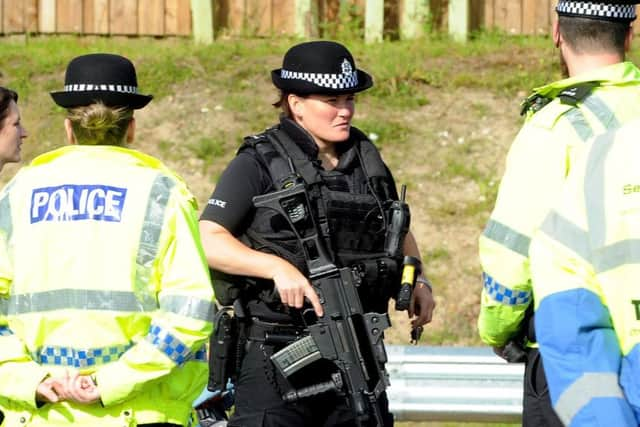Armed police turning out for hundreds of routine calls across Scotland
Since May, the role of Armed Response Vehicle (ARV) officers has been extended, overturning an earlier commitment only to deploy armed officers to firearms incidents or those where there was a threat to life.
Chief Constable Iain Livingstone said that since the introduction of the new deployment model on May 7, ARV officers had helped trace more than 80 missing people.
Advertisement
Hide AdAdvertisement
Hide AdIn a written update to the Scottish Police Authority (SPA), he said: “The new Armed Policing Deployment Model was implemented on Monday 7 May 2018. Since the introduction, ARV officers have, in addition to attending firearms incidents, attended threat-to-life incidents with emphasis on vulnerability and public protection, critical incidents and those incidents deemed appropriate by Initial Tactical Firearms Commanders.


“Amongst other incidents, ARV officers have assisted with over 1,500 reports of missing or ‘concern for’ persons. ARV officers have traced over 80 individuals including, high risk and vulnerable persons and attended over 300 road traffic incidents, including dangerous driving, vehicle fires and drink-driving incidents.”
The decision to reverse the policy on armed officers followed an earlier pledge that they would only be sent to firearms incidents or those where there was a threat to life. The policy was introduced in October 2014 amid growing controversy over the use of armed officers under then chief constable Sir Stephen House.
Meanwhile, SPA chair Susan Deacon has said her organisation needs a “step change” in how it communicates with the public and the media.
Under her predecessor, Andrew Flanagan, the SPA – which helps manage the police budget – was criticised for its decision to hold meetings in private, something which was later reversed.
Ms Deacon said: “There remains a pressing need for the SPA to deliver a step change in how it communicates and engages. We still have a great deal to do to ensure that public and stakeholder engagement is designed into our way of working and decision making – not just through the actions and efforts of board members, but in the way the organisation works at every level and across all its functions.”
Ms Deacon said the SPA’s meetings needed to be “more pro-actively communicated and publicised” and she said the organisation had to engage “more actively” with traditional and social media.